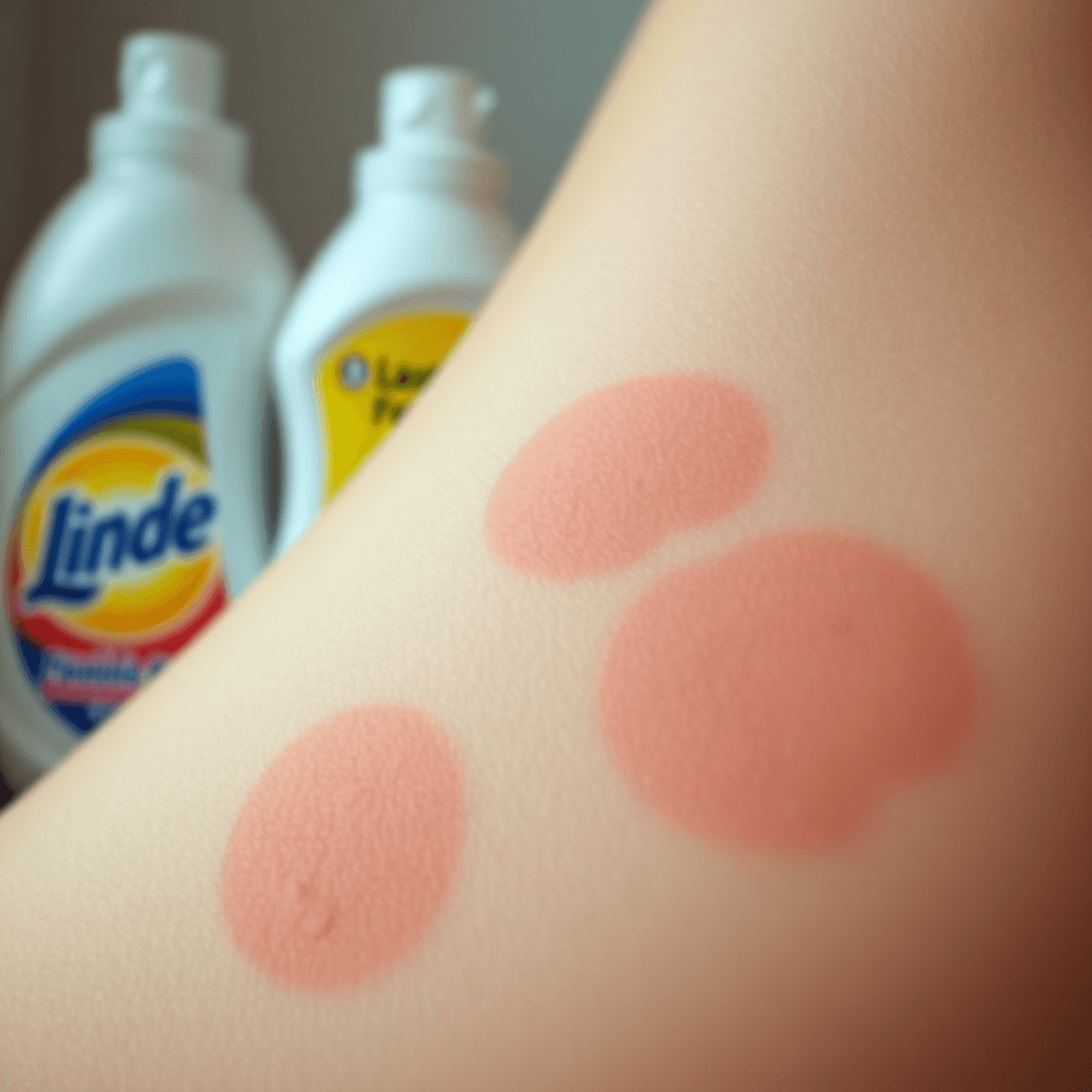Eczema on the Buttocks: 5 Ways to Manage It

Introduction
Eczema is a long-lasting skin condition that causes inflammation and irritation. The most common type is atopic dermatitis, which usually appears in areas like behind the knees, inside elbows, on scalps, hands, and feet. While it's uncommon to find eczema on the buttocks, flare-ups in this area can still be uncomfortable.
Another type of eczema called perianal dermatitis specifically affects the area around the anus and can spread to the buttocks. This condition can be both physically upsetting and difficult to treat due to its sensitive location.
Common symptoms include redness, itching, and dryness — these can be especially annoying when they happen on the buttocks. If not properly treated, a rash in this area can become unbearable.
In this article, you will discover 5 effective ways to manage eczema on the buttocks, providing relief from symptoms and improving skin health. These methods not only aim to alleviate your discomfort but also promote natural health, leveraging the healing power of nature. Additionally, we will explore some options for pain relief and management that could further enhance your well-being during these flare-ups.
Understanding Eczema on the Buttocks
Eczema can occur on various parts of the body, including the buttocks, which might seem unusual to some. The skin in this area is particularly vulnerable due to constant pressure, friction, and exposure to irritants. These conditions can weaken the skin barrier, making it more susceptible to eczema flare-ups.
Causes of Eczema Flare-Ups
The following factors often contribute to eczema flare-ups on the buttocks:
- Friction and Pressure: Sitting for long periods can cause irritation.
- Sweat and Moisture: Trapped sweat creates a breeding ground for bacteria.
- Harsh Fabrics: Wearing tight-fitting clothes made from synthetic materials like nylon or polyester can irritate sensitive skin.
Common Triggers and Irritants
- Harsh soaps or detergents
- Rough toilet paper
- Scented personal care products
Symptoms of Eczema on the Buttocks
Recognising the symptoms of eczema specific to this area is crucial for effective management. Individuals typically experience:
- Redness and Itching: Inflamed patches are common.
- Dryness: The skin may feel tight and flaky.
- Small Raised Bumps or Patches: These can become severe, leading to cracked or swollen skin in extreme cases.
Understanding these factors and symptoms provides a foundation for managing eczema on the buttocks effectively.
Types of Eczema Affecting the Buttocks
Different types of eczema can appear on the buttocks, each with its own characteristics and causes.
Irritant-Toxic Perianal Dermatitis
Irritant-toxic perianal dermatitis is the most common form affecting this area. It often results from prolonged exposure to irritants or toxins that compromise the skin barrier. Symptoms include red patches or blisters around the perianal region, with some cases showing inflammation extending to the thighs. This type is usually without symptoms but can cause significant discomfort if not managed properly.
Atopic Perianal Dermatitis
In contrast, atopic perianal dermatitis is a long-lasting condition associated with atopic dermatitis elsewhere on the body. Characterised by persistent redness, it may progress to involve surrounding areas such as the scrotum or vagina. Over time, repeated scratching can cause anal fissures and scratch mark scars, leading to thickened, leathery skin. Individuals with this condition often experience recurrent flare-ups that require diligent management. For effective treatment, it's essential to use products specifically designed for atopic dermatitis, such as an eczema cream or a body wash for eczema.
Perianal Allergic Contact Dermatitis
Perianal allergic contact dermatitis is less common but distinct from other forms due to its reaction-based nature. It occurs when allergens contact sensitive skin, causing splotchy red patches or small raised bumps on exposed areas. Unlike irritant-toxic dermatitis, which stems from non-specific irritants, allergic contact dermatitis necessitates identifying and avoiding specific allergens for effective treatment.
Understanding these different types can help tailor your approach to managing eczema on the buttocks efficiently. For comprehensive care, consider exploring various eczema treatment options available online that cater to different forms of eczema including atopic dermatitis and psoriasis.
1. Gentle Skincare Routine
Managing eczema on the buttocks effectively requires a gentle skincare routine. The use of fragrance-free cleansers and moisturisers is crucial to avoid further irritation. Products with fragrances can worsen symptoms, leading to redness and itching.
When choosing cleansers, consider options like goat milk soap or other soaps specifically designed for sensitive skin. These products are less likely to strip the skin of its natural oils, which is essential in maintaining a healthy moisture barrier.
Taking baths instead of showers can also be beneficial. Baths allow for prolonged skin contact with water, which can hydrate and soothe irritated areas more effectively than a quick shower. Ensure the water is lukewarm rather than hot, as hot water can dry out the skin.
Incorporating these gentle products for eczema, such as those made from all-natural ingredients, into your daily routine can significantly reduce discomfort and help manage flare-ups on the buttocks.
2. Moisturisation Techniques
Keeping your skin hydrated is crucial in preventing eczema flare-ups on the buttocks. Moisturiser for eczema plays a significant role in maintaining the skin's barrier, reducing dryness and irritation that often lead to exacerbated symptoms.
Types of Moisturisers
- Creams: Thicker than lotions, they provide a barrier against moisture loss but without the greasiness of ointments.
- Ointments: Containing higher oil content, they are ideal for extremely dry skin, offering superior hydration and protection.
Effective Application Techniques
To ensure maximum absorption and benefit:
- Apply After Bathing: Moisturise immediately after bathing when your skin is still damp. This helps lock in moisture.
- Gentle Massage: Use gentle circular motions to apply the moisturiser evenly across the affected area.
- Frequent Application: Reapply throughout the day as needed to maintain hydration, especially if you experience dryness or itching frequently.
By choosing the right type of moisturiser and applying it correctly, you can better manage eczema symptoms on your buttocks and improve your skin's overall condition.
3. Clothing Choices
Choosing the right clothing is crucial for managing eczema on the buttocks. Wearing breathable cotton clothing can make a significant difference in comfort and skin health. Cotton is a natural fibre that allows airflow, helping to reduce irritation and prevent moisture build-up. This reduces the likelihood of flare-ups in sensitive areas like the buttocks.
On the other hand, tight-fitting clothes and synthetic fabrics such as nylon or polyester can exacerbate symptoms. These materials tend to trap moisture against the skin, creating an environment conducive to irritation and inflammation. Opting for loose-fitting garments made from breathable fabrics ensures better ventilation and less friction against the skin.
When selecting clothing, consider also choosing cotton sheets and undergarments to maintain comfort during prolonged periods of wear. Paying attention to these details can help manage eczema more effectively, enhancing your quality of life while reducing discomfort associated with this condition.
4. Managing Itching and Inflammation
Dealing with the persistent itchiness and inflammation associated with eczema on the buttocks can be particularly challenging. Fortunately, several over-the-counter options are available to help alleviate these symptoms.
Topical Medications
Hydrocortisone cream is a commonly recommended treatment for reducing inflammation and easing itching. Applying a thin layer of hydrocortisone to the affected area can provide significant relief. Always follow the instructions on the packaging or consult with a healthcare professional for guidance.
Antihistamines
For those who suffer from severe itching, oral antihistamines like cetirizine or loratadine might be beneficial. These medications work by blocking histamine, a substance in the body that causes allergic symptoms.
Both topical treatments and antihistamines serve as effective tools in your eczema management arsenal, offering relief and allowing you to engage in daily activities without constant discomfort.
In addition to these options, it's worth exploring natural remedies that can help manage inflammation. For instance, certain products designed to relieve back, joint and muscle pain also have anti-inflammatory properties that could benefit those suffering from eczema-related discomfort. These products often contain a high percentage of natural ingredients sourced from the EU, making them a gentle yet effective option for symptom relief. Remember, these options should complement a broader eczema care routine that includes gentle skincare and appropriate clothing choices.
5. Lifestyle Adjustments
Understanding your personal eczema triggers is crucial for managing flare-ups on the buttocks. Many individuals find that certain elements in their environment, such as stress, fabrics, or specific skincare products, can exacerbate symptoms. Keeping a journal to track these triggers and patterns can be beneficial in identifying what to avoid.
A healthy diet plays a significant role in managing eczema. Incorporating anti-inflammatory foods like fruits and vegetables helps reduce overall inflammation and supports skin health. Omega-3-rich foods, such as fish or flaxseeds, are also beneficial.
Sharing experiences with others who have eczema can provide valuable insights and support. Joining online forums or local support groups allows you to learn from others' experiences and gather practical advice on managing symptoms effectively.
Prioritising lifestyle adjustments not only aids in minimising flare-ups but also enhances overall well-being. This holistic approach supports both physical and emotional health, making it an essential component of eczema management.
Conclusion
Managing eczema on the buttocks requires a holistic approach that encompasses skincare, lifestyle adjustments, and expert guidance. While this article has explored various treatment options for eczema, including gentle skincare routines and dietary considerations, consulting a dermatologist remains crucial. Dermatologists specialising in perianal conditions can provide personalised advice, especially for specific types of perianal dermatitis like atopic or irritant-toxic perianal dermatitis. Seeking professional help ensures you're equipped with the latest insights and treatments tailored to your condition's unique challenges. Prioritising expert consultation can significantly enhance your management strategy for long-term relief.
FAQs
What is eczema on the buttocks?
Eczema on the buttocks is a long-lasting skin condition that causes inflammation and discomfort in that specific area. It may manifest as red, itchy patches and can be triggered by various factors.
What are the common triggers for eczema flare-ups on the buttocks?
Common triggers include harsh soaps or detergents, rough toilet paper, scented personal care products, and other irritants that can exacerbate the condition.
What types of eczema can affect the buttocks?
Different types of eczema can appear on the buttocks, including irritant-toxic perianal dermatitis, atopic perianal dermatitis, and perianal allergic contact dermatitis. Each type has distinct characteristics and causes.
How can I manage itching and inflammation associated with eczema on the buttocks?
Managing itching and inflammation can involve using topical medications like hydrocortisone cream for relief and taking oral antihistamines for severe itching. It's also important to maintain a gentle skincare routine.
What lifestyle adjustments can help in managing eczema on the buttocks?
Understanding your personal eczema triggers is crucial. Keeping your skin moisturized, choosing appropriate clothing, and avoiding known irritants can significantly help in managing the condition effectively.
Why is a gentle skincare routine important for managing eczema?
A gentle skincare routine helps prevent further irritation to sensitive skin. This includes using mild cleansers, moisturizing regularly with suitable products like creams or lotions, and applying them after bathing for maximum benefit.










